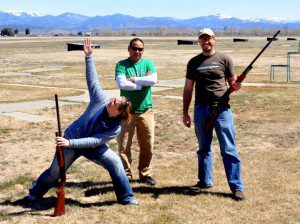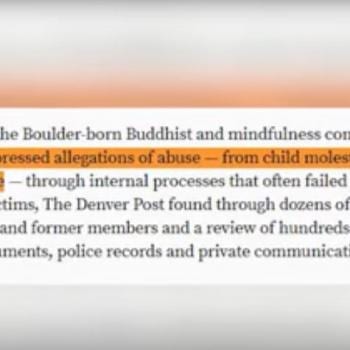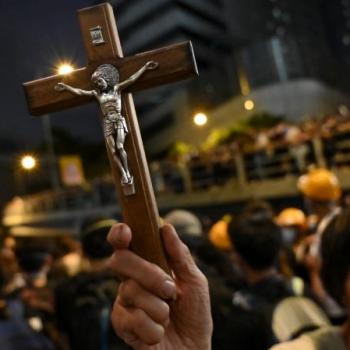Sometimes the only word I can come up with to describe my country is “exacerbated.”
First there is the shooting in Aurora, CO. What can one say?
Except to express the shock and sadness we all feel for those lost and hurt, their families, and everyone else affected by this tragedy. This hits close to home – close enough at least – as my mom, Ronnie, grew up in Aurora and my sister, Eve, currently lives just a few miles from there. My sister’s friend, Kirk Siegler, is a reporter in the area currently covering the story for NPR and its affiliates (and here).
One of my cousins living nearby in Denver expressed her wishes that we could once and for all control guns, while a friend and fellow blogger suggested we get serious about mental health in America. I tend to agree more with the latter, along with the fact that deeper societal issues need to be addressed, and discussions with my mom and sister only solidified that.
On the discussion of questions of gun control, I sometimes diverge sharply from Buddhists and political liberals. I agree, in essence, with those who say “it’s not guns that kill people, it’s people.”
Yet my reasoning, I believe, places me right back in the camp of Buddhists and liberals.
I come from Montana and had my first gun around the age of 9, a pump action pellet gun. The neighborhood kids and I would sit on my next-door neighbor’s back porch and shoot soda cans off posts on his fence. We were supervised. We learned, respected, and followed safety rules. I hunted for a couple years as a teen, and I joined my father at the “trap club” for clay-pigeon shooting, a pass-time the family still enjoys.

I was also moved by Michael Moore’s movie, Bowling for Columbine, made in 2002 after the deadly shootings at a Columbine high school, just a few miles from Aurora. In it he made the point that Canadians have as many guns, per capita, as Americans, yet still live in remarkable peace and safety. It turns out not to be true, however, as Americans have 90 guns per 100 people, while Canadians have a paltry 30. Yet, another look at gun statistics – how many guns per capita per state, as measured by federally regulated background checks – shows us that the ‘big gun’ states are mostly rural and generally not known for gun-violence. Montana ranks #2 in per capita gun ownership, Colorado is 14th, and California, known for its gangs and riots, is #44th. But that, of course, is just legal guns.
But even if you put the data side by side on national ownership and deaths, where US is #1 in both, you might expect that countries with 50% as many gun owners would have 1/2 as many deaths by gun violence, those with 33% to have 1/3, and so on. But that isn’t the case (gun related deaths per year). Switzerland, #4 in terms of gun ownership at almost exactly half as many guns per person, represents an interesting case to look at with less than one yearly gun-death per 100,000 people.
I spoke with my mother and sister this week to see what they thought. When I raised the question of tougher laws to my sister, she said, “I don’t think it would have prevented it… If someone is bound and determined to do something like this, they will find a way.”
My mother echoed this, saying that “People can get the guns if they want them… We need to focus on other things.”
(7/24 addition: After some good discussions and comments here, at G+, twitter, in real life, and consulting with Jon Stewart I do want to say that gun law discussions should still be on the table. We can tighten laws, banning assault weapons and/or the large clips they can hold, making hand guns or all guns harder to obtain, and eliminating loop-holes for gun shows [see here, here, and for a bizarre and self-defeating defense of gun shows, here]. My main point is that we need to also/more so look at the people and social structures and emotions that lie behind the violence.)
To the people, the culture, the fear and hatred lying at the roots of all violence.
As far as I can see now, no gun law in existence could have prevented this killing. Even if the AK-47 style weapon he had (which fortunately jammed) were banned, he still could have gone in with 10 or more 6-shooting revolvers or some such thing. He could have made an I.E.D. and thrown it into the crowd. He could have concocted a fairly deadly poisonous gas and blocked the exits. The point is, if he wanted to do such carnage, as the bright young man that he appears to be, he probably could have found a way, gun laws or no gun laws, guns or no guns.
One place to look is greed. Greed is increasingly pervasive in America. The amazing gains produced by educators, collectives, workers, and unions through the early 20th century have evaporated in the last ten or so years. That greed has been supplemented by uncertainty: we don’t know if paying people more will help, who really needs a good education?, unions just waste money.
The stories of those who ‘pull themselves up by their bootstraps’ on the one hand and the ‘wellfair queens’ on the other are repeated, time and again. It’s almost as if some inner core of our nature is appeased by seeing that, hey, we can do it too… We have our hero: anyone working up the ladder, and our scapegoat for any problem in the world: anyone below us.
Hatred is often reserved for those who don’t buy into this ideology. And the ideology is dominant, pushed by talk radio and Fox News, among others. Think about the recent financial crisis: big banks making bad loans to mostly middle and lower class people, inflating market values (bankers then repackaged the loans and made big $$ re-selling the now-inflated commodity around the world) which ultimately had to end. When it did, what happened? We – via the government – gave all kinds of money to the banks to fix it! But look at what Iceland did:
http://www.youtube.com/watch?v=xt4Z3rm4r-4
vs the “Inside Job” in the US:
So I’ll trust I’m back in the fold of liberal Buddhist and so on. And if you think this is all just more liberal conspiracy theory, I present to you Forbes: Increasing Wealth Inequality Is A Warning Sign Of Instability.
More poignant, though with its own flaws (too much focus on great ‘men’, for instance), is this recent fictional discussion of America today:
Warning: Contains strong language
All of that just begins to point out the flawed vision so many Americans have of themselves and the world today. My sister pointed out the craziness of scalpers selling midnight viewing tickets for the latest Batman movie for as much as $3000. Really? $3000 to watch a movie that you could watch tomorrow or the next day for $10? Isn’t this a bit excessive? Obsessive? Unhealthy? Crazy?
To dare delve a bit deeper, I would say that the obsession with having/experiencing the latest and greatest creates an equal pressure to succeed, to keep up with next person. To live an average life is almost a failure by today’s hyper success-driven standards. So one can only wonder what happened when the shooter withdrew from his prestigious graduate studies a few months ago.
Holmes recently took an intense, three-part oral exam that marks the end of the first year.
Those who do well continue with their studies and shift to full-time research, while those who don’t do well meet with advisers and discuss their options, including retaking the exam.
University officials would not say if he passed, citing privacy concerns. The university said Holmes gave no reason for his withdrawal, a decision he made in June.
Individuals who commit acts of mass violence often have suffered some kind of loss and aren’t able to bounce back from it, said Barry Spodak, a behavioral threat assessment consultant who has worked with the Secret Service and the U.S. Marshals Service. (via ABC news)
What about society? What about friends? What about neighbors?
As my mother, a social worker who has decades of experience with troubled young people, pointed out, we all go through rough periods in our lives. Aside from close personal networks, nobody might have noticed anything strange about him in the last few months. You can’t legislate friendship. But how many young people these days can you think of that might not have any real personal friends that they see frequently? And personally, I’ve relied on my family to help me through some very tough times in life, but you can’t legislate that either.
What we need is a revolution of some kind. A revolution of thinking in which “it’s okay to be different” and “a respect for all life” to quote my mother (it’s always nice to talk with her when the inner hippie comes out). That inner hippie is quite Buddhist, I think, as she pointed to the most important change we can make being an inner one, wherein a “rippling effect will follow.”
Americans, in cities and suburbs in particular (small towns still generally do okay), can too easily become cut off. What if just one person had really connected with this guy in the last couple of months? In our busy lives we’ve become apathetic regarding the suffering of those around us. Bullying and other kinds of abuse have become endemic, so much so that they are barely noticed except in the most extreme cases. Was the shooter was a victim of bullying? Or was he just cut off, neglected, set adrift in a society too busy with other things? Or did he have some real mental illness, another side of our society so easily brushed away, along with the poverty and insecurity that so often go along with it?
Do you know your neighbors? Do you feel like you’re just too busy with other things these days to get to know them? Do you care? What about your own anxiety and possible panic in life? (My sister told me a story about a friend during her time in LA who witnessed a drive-by shooting. For a long time afterward she couldn’t be in certain crowds with people behind her without feeling utterly panicked.) Do you have friends or family to go to when life is overwhelming?











